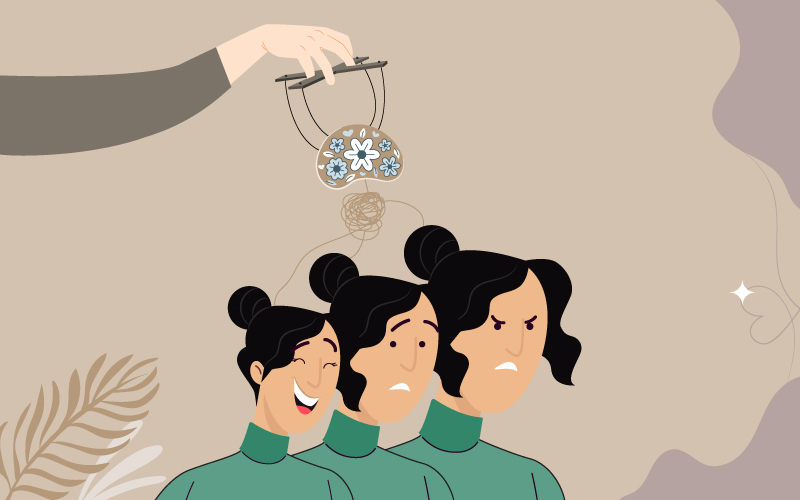You’re having a nice conversation at dinner when an acquaintance comes by. Are they trying to persuade you to invest in their small, never-going-to-workout-business or are they trying to manipulate you into it? Manipulation can happen in various aspects of life, from personal relationships to the media we consume. Understanding what it truly means, recognizing its signs, and equipping yourself with strategies to counter it are crucial skills for moving forward in a society that runs on playing with emotions to get by.
What Do You Mean by Manipulation?
Manipulation is the art of exerting control or influence over others in a deceptive or indirect manner. It involves using tactics that exploit vulnerabilities, emotions, or cognitive biases to achieve desired outcomes, often at the expense of the manipulated individual’s autonomy or well-being.
Manipulative behavior can range from subtle forms of persuasion to outright coercion and force, and it can manifest in different settings, including interpersonal relationships, politics, advertising, and social media.
The Difference Between Manipulating and Influencing
While manipulation and influence both involve shaping others’ behavior or attitudes, there are key distinctions between the two. Influence typically operates transparently and ethically, relying on persuasion, logic, and credible information to sway opinions or decisions.
In contrast, manipulation often involves deception, coercion, or exploitation of psychological vulnerabilities to achieve goals, without regard for the target’s autonomy or best interests. Understanding this distinction is crucial for recognizing when one is being manipulated and for establishing healthy communication and relationships based on mutual respect and consent.
8 Reasons You Are Getting Manipulated
1. Lack of Self-awareness
If you lack self-awareness or confidence in your own beliefs and values, you will be more susceptible to manipulation. Manipulators often exploit uncertainty or insecurity to assert control over their targets.
2. Emotional Vulnerability
Emotions play a significant role in manipulation. If you are experiencing stress, loneliness, or low self-esteem, you may be more easily swayed by manipulative tactics that promise validation, acceptance, or relief from discomfort.
3. Cognitive Biases
Human cognition is susceptible to various biases that can be exploited by manipulators. Confirmation bias, for example, can lead you to seek out information that confirms your existing beliefs, making you vulnerable to manipulation through selective presentation of facts or narratives.
4. Social Pressure
Conformity to social norms and the desire for acceptance can make you susceptible to manipulation by groups or authority figures. Fear of rejection or ostracism may compel you to comply with unreasonable demands or beliefs.
5. Information Overload
Wouldn’t you agree that sometimes distinguishing between credible sources and misinformation can be challenging? Manipulators capitalize on confusion and uncertainty by disseminating false or misleading information to advance their agendas.
6. Manipulative Tactics in Relationships
Manipulative behavior is particularly common in intimate relationships, where your partner may use tactics such as gaslighting, guilt-tripping, or emotional blackmail to control your thoughts, feelings, or actions.
7. Media Manipulation
Mass media platforms wield significant influence over public opinion and behavior. Manipulative techniques, such as sensationalism, framing, and propaganda, are often employed to shape narratives, distort reality, or manipulate audiences for political or commercial purposes.
8. Lack of Boundaries
If you fail to establish and enforce personal boundaries, it will lead you to get manipulated by others who will disregard or exploit your boundaries for personal gain. Setting clear boundaries and asserting your autonomy are essential for protecting yourself against manipulation in various contexts.
How to Stop Getting Manipulated?
Recognizing and resisting manipulation requires awareness, critical thinking, and assertiveness.
Cultivate Self-awareness
Reflect on your values, beliefs, and boundaries to develop a strong sense of self-awareness and confidence in your judgment.
Educate Yourself
Stay informed about psychological tactics used in manipulation, such as gaslighting, guilt-tripping, and emotional manipulation, to recognize them when they occur.
Question Information
Practice critical thinking and skepticism when evaluating information, especially on social media and in the news. Verify sources and fact-check claims before accepting them as true.
Set Boundaries
Establish clear boundaries in your relationships and interactions to protect yourself from manipulation. Learn to say no assertively and enforce your boundaries without guilt or apology.
Trust your Instincts
Pay attention to your intuition and gut feelings, as they can often signal when something is amiss or when you’re being manipulated.
Seek Support
Reach out to trusted friends, family members, or professionals for support and guidance if you suspect you’re being manipulated. Talking to others can provide perspective and validation of your experiences.
Practice Assertiveness
Assertiveness involves expressing your thoughts, feelings, and needs confidently and respectfully. Practice assertive communication techniques to assert your boundaries and resist manipulation without resorting to aggression or passivity.
Take Breaks from Media
Limit your exposure to manipulative media content, such as sensationalist news or social media platforms that promote unrealistic standards or ideologies. Take regular breaks to recharge and maintain perspective.
Final Thoughts
Manipulation is pervasive and safeguarding yourself against psychological influence is an ongoing endeavor. By cultivating self-awareness, critical thinking, and assertiveness, you can empower yourself to recognize and resist manipulation in its various forms. Remember that you have the right to autonomy and agency in your thoughts, feelings, and actions, and don’t hesitate to seek support if you feel overwhelmed or uncertain. By standing firm in your values and boundaries, you can navigate relationships and society with greater confidence and integrity.

Leave a Reply
You must be logged in to post a comment.